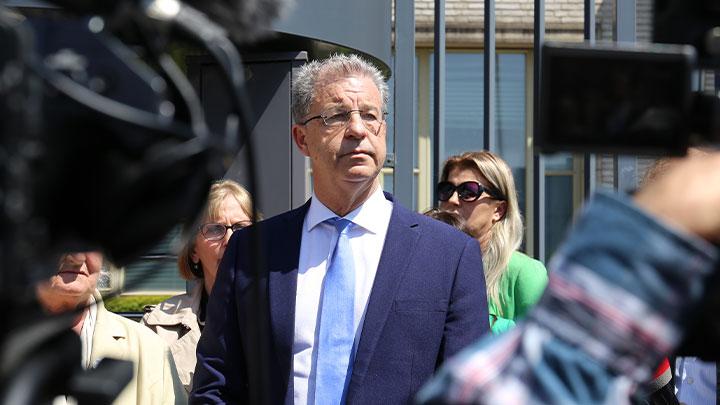The IRMCT Office of the Prosecutor (OTP) takes note of today’s appeal judgment in the Stanišić and Simatović case

The OTP is satisfied that the Appeals Chamber accepted our arguments that Stanišić and Simatović are criminally liable as participants in a joint criminal enterprise for a significant number of horrific crimes committed against innocent civilians. The Appeals Chamber confirmed that this joint criminal enterprise comprised, in addition to Stanišić and Simatović, many senior Serbian, Croatian Serb and Bosnian Serb political, military, and police leaders. The purpose of this joint criminal enterprise was to forcibly and permanently remove, through the commission of the crimes of persecution, murder, deportation and inhumane acts (forcible transfers), the majority of non-Serb civilians, predominantly Croats, Bosnian Muslims and Bosnian Croats, from large areas of Bosnia and Herzegovina and Croatia. Finally, the Appeals Chamber increased Stanišić’s and Simatović’s sentences to fifteen years each.
While the Appeals Chamber did not enter convictions against Stanišić and Simatović for crimes committed in Croatia prior to April 1992, it confirmed that there was a single joint criminal enterprise whose aim was to ethnically cleanse non-Serbs from Serb-claimed territories in both Bosnia and Herzegovina and Croatia.
Reacting to today’s verdict, IRMCT Chief Prosecutor Serge Brammertz gave the following statement:
The final convictions of Jovica Stanišić and Franko Simatović today continue the justice process for the atrocity crimes committed during the conflicts in the former Yugoslavia. Independent international judges have now confirmed on final appeal that as senior officials in the State Security Service of the Republic of Serbia, Stanišić and Simatović are guilty as participants in a joint criminal enterprise to ethnically cleanse non-Serbs from Serb-claimed territories in Bosnia and Herzegovina and Croatia. Other participants in that joint criminal enterprise include Slobodan Milošević, Milan Martić, Milan Babić, Goran Hadžić, Radovan Karadžić, Ratko Mladić, Momčilo Krajišnik, Biljana Plavšić, and Željko Ražnatović (aka Arkan).
This appeal judgment forms part of the record of the suffering of the people of Bosnia and Herzegovina and Croatia between 1991 and 1995. Hundreds of thousands of victims were forced from their homes. Tens of thousands were tortured, abused, raped and killed. These were campaigns of crimes designed and implemented by political, military and police leaders in Bosnia and Herzegovina, Croatia and Serbia who decided to use atrocities to cleanse territories of innocent civilians from different ethnic and religious groups. Those essential facts have been proven yet again in this case, as they have in so many judgments by the ICTY and IRMCT.
That record, though, also demonstrates that the international community, when united, can deliver justice to the victims and hold the most senior perpetrators responsible for their crimes.
Today, we should remember the victims and survivors. And we should recognize the courage of the witnesses who participated in this and other trials.
This marks the final ICTY case. However, there are still thousands of war crimes suspects throughout the countries of the former Yugoslavia who remain to be prosecuted. We will continue our intensive efforts to provide support and assistance to national counterparts to ensure that more justice is achieved for more victims.